The Sochi Olympics Knowledge Graph
by Anvil on February 21, 2014Search Engine OptimizationThe last few weeks have been filled with talk of the Sochi 2014 Winter Olympics, from #sochiproblems to athletes adopting stray dogs it’s what has been filling your news feeds. Where some aspects of the games have not gone so well…
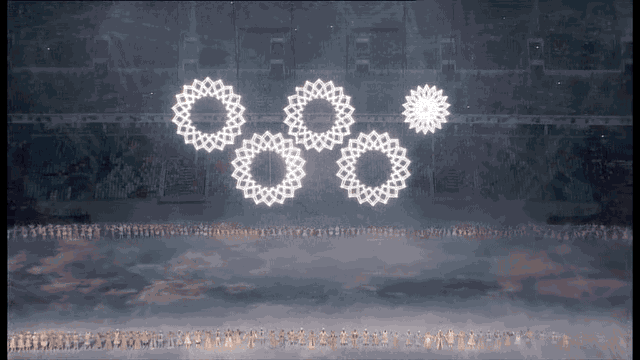
others have excelled. The Knowledge Graph has succeeded this Winter Olympics season in giving us the information we want, without us having to click on a search result.
The Knowledge Graph, as defined on Google’s blog, enables you to search for things, people or places that Google knows about and instantly get the information you are looking for, all without having to click through to a specific web page. Will Hattman did a great job of explaining the Knowledge Graph in his talk at SEMpdx in February 2014 (slide 51 in the slide share). As he stated, there is no direct path for sites into the Knowledge Graph, but incorporating trust elements onto your site like schema.org, Google Authorship, and a verified Google+ profile can help.
The official Sochi site is on the right track, and the search results show it. With a verified Google+ profile, and schema.org event markup on their site, they seem to have earned their way into the Knowledge Graph.


Searching for a variety of Winter Olympics related terms results in a ton of information at your fingertips. Want to know about Team USA? Type in “USA Winter Olympics Team.” You can find out what events Team USA will be competing in today, tomorrow, or even what they competed in yesterday. How many medals do we have? It shows you right there, along with what events the medals were won in. (As of 10 am on Thursday February 20th we had 23)
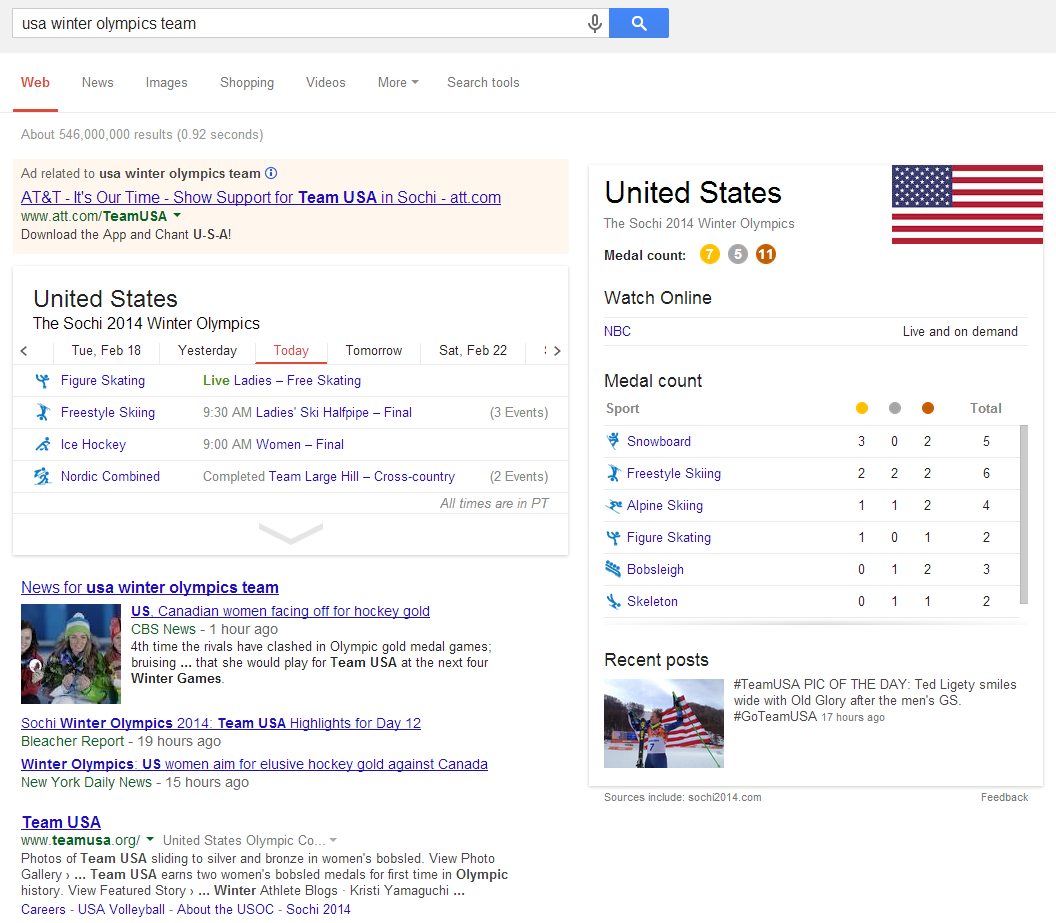
Now let’s say you’re interested in learning more about Ted Ligety, who just made history for being the first American to take home gold in the men’s giant slalom. This search results in all of the information you could want about Ted, his height, age, parents, siblings, the results of the races he’s participated in, including the last race he will be participating in at the 2014 Olympics.
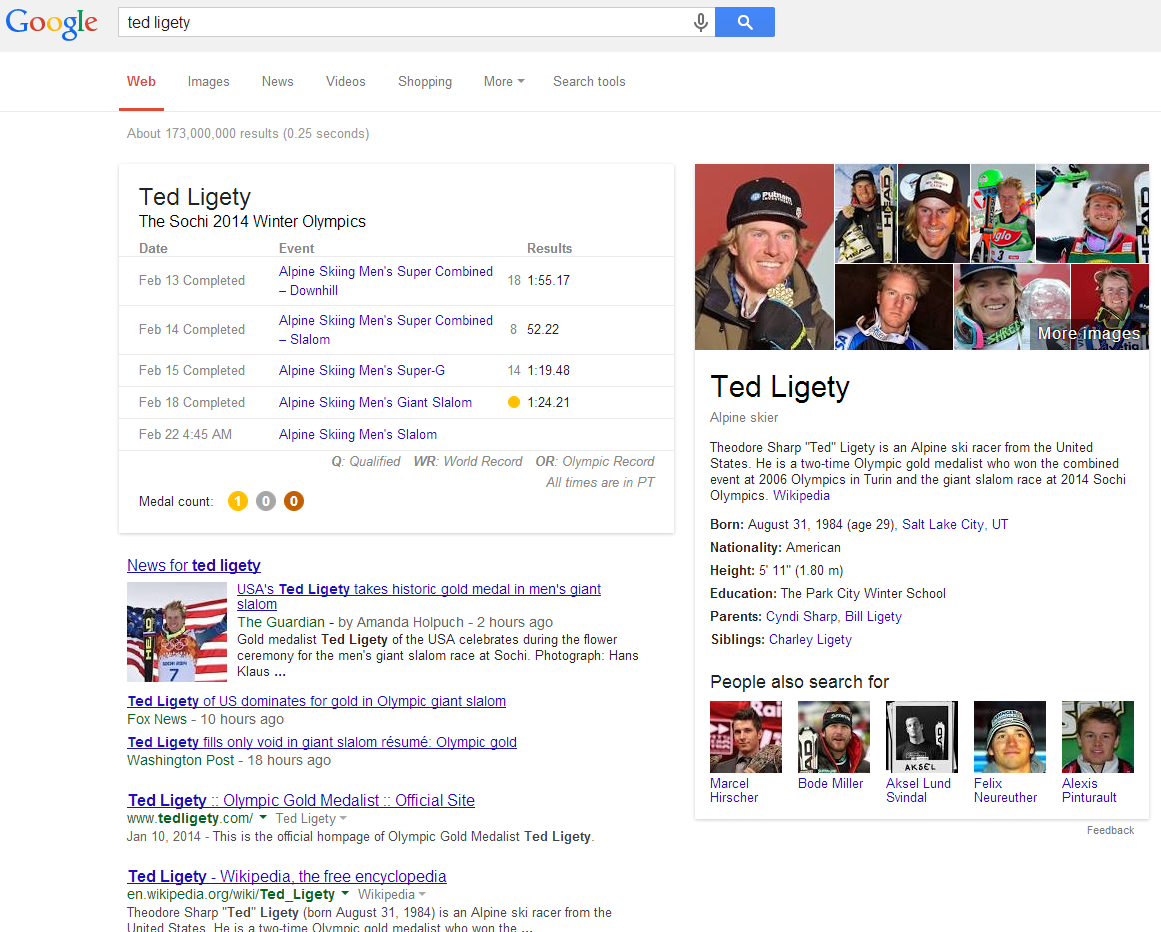
The Knowledge Graph continues to answer our questions when searching for “Russian figure skating”, which includes the roster, a link to watch live online, results, and more.
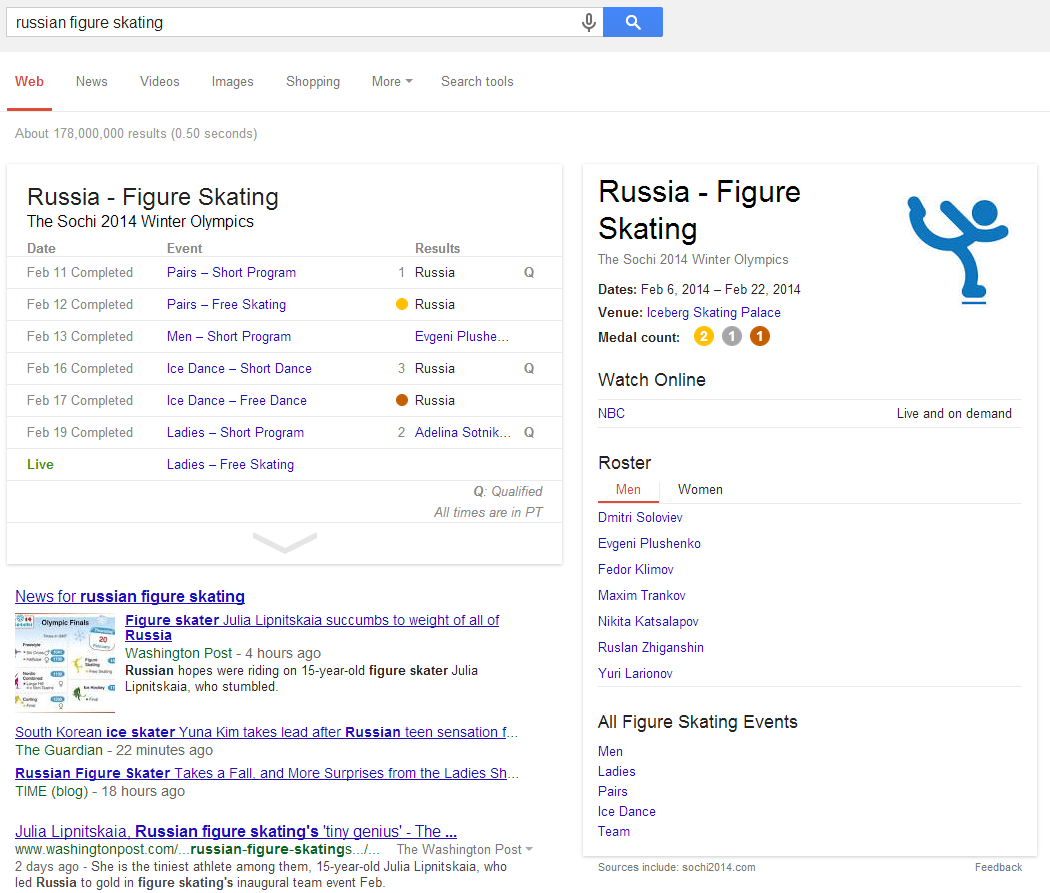
Now, we must see if Bing and Yahoo are able to deliver the same level of results, with their own versions of the Knowledge Graph.
A search on Bing for Ted Ligety gives you this information:
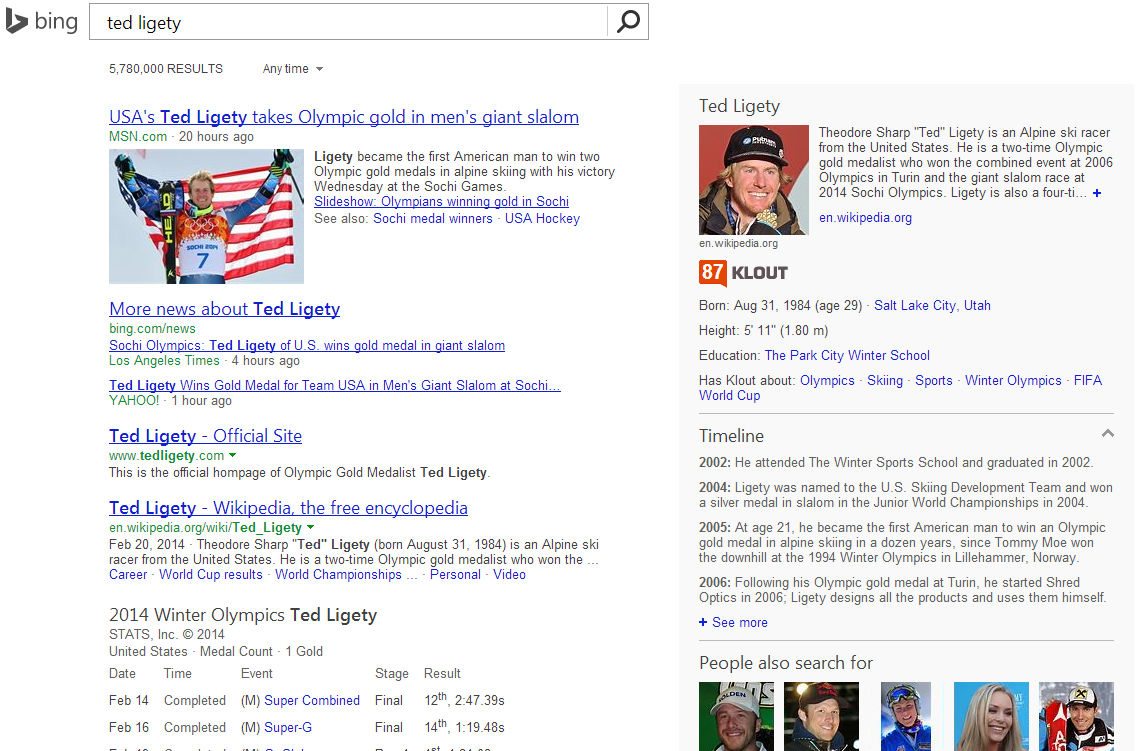
While the results are further down the page, you can still find a plethora of information on Ted, his Klout score of 87, a timeline of major life events, and a snippet from his Wikipedia page.
Searching on Yahoo not only gets you a snow covered mountain background, but a large image from when he won the men’s giant slalom, race results, the Wikipedia snippet, a link to his official site and his twitter account.
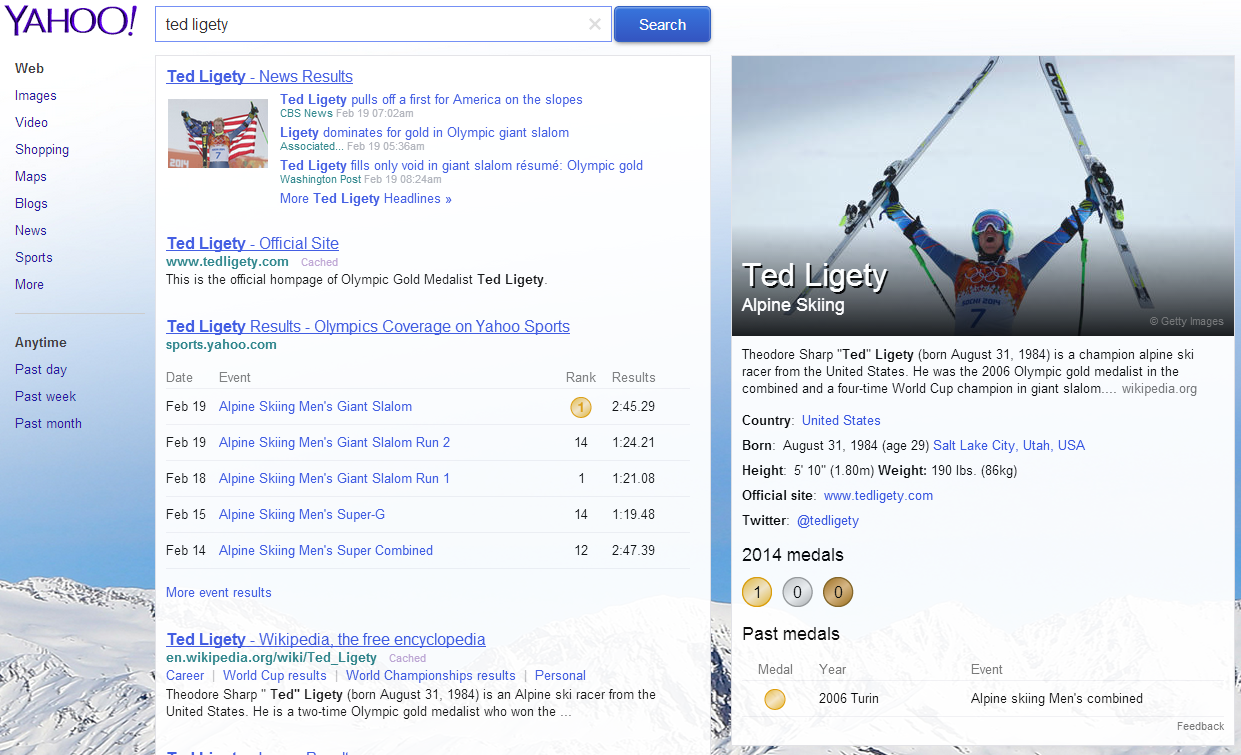
In a world where search results can be overwhelming, it’s nice to see all of the main search engines striving to answer “things, not strings.”
What do you think of the Knowledge Graph? Do you think it is justified for search engines to continue improving the knowledge graph, with the intent to improve user experience? Or will it just take traffic away from site owners who have worked hard to provide a good user experience and the correct information?
Now go enjoy the rest of the Olympics, like Meryl Davis and Charlie White.

